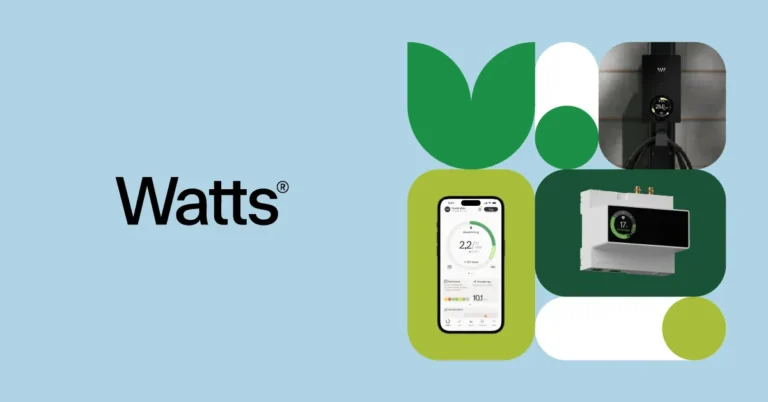Last year, Danske Bank was the employer that created the biggest number of new jobs in Lithuania, and the branch of the Danish company intends to maintain a similar growth rate this year. The head of the Global Services Centre, Rosita Vasilkevičiūtė, told us how to expand rapidly and retain employees in a stressed labour market.
The branch of Denmark’s Danske Bank in Lithuania comprising a bank, a global services centre and an IT service centre increased last year from 2,011 to 2,500 people.
According to Danske Bank estimates, in 2017 it hired two new employees almost on a daily basis, and this year the rate should be similar – the branch intends to hire approximately 400 new employees.
Employers in Lithuania tend to complain about the shortage of necessary specialists, but Ms Vasilkevičiūtė does not give this any prominence. In her opinion, the key is to understand the labour market well and adapt to it.
“We are aware that we will not be able to get certain abilities and experience from day one; consequently, it is important for us to invest in young people so that we can develop such skills”, she says.
One example of such an investment made by Danske Bank concerns specialists in money laundering and terrorism finance prevention. “Lithuania has barely a handful of specialists in this field”, Ms Vasilkevičiūtė explains.
So Danske Bank developed a training programme in Lithuania that has helped prepare 500 specialists in money laundering and terrorism finance prevention.
Opportunity to attract jobs
Ms Vasilkevičiūtė states that the expansion of Danske Bank has gained momentum in Lithuania, showing that our people have managed to earn the trust of their colleagues within the Danske Bank Group, which operates throughout the Scandinavian countries. She is excited to see Lithuanians grabbing the interest of new divisions in the Danske Bank Group and attracting increasing numbers of functions to our country.
“The variety and spectrum of positions (in the service centre in Lithuania – VŽ) have become huge; these are no longer just repetitive and less complex tasks”, she says.
For instance, this year the business development functions of Danske Bank, in other words sales positions, will also be assigned to Vilnius.
“It is also interesting that often a new employment position in the Danske Bank Group is advertised globally. Nowadays, the place of origin from which an individual is going to work is no longer so important. If a person from Lithuania possesses the appropriate competence, skills and experience, they can apply for a global position and work from Lithuania”, says Ms Vasilkevičiūtė.
Because of the increasingly complicated functions, salaries have been rising. However, Danske Bank tries not to yield to the pressures of the labour market.
“In part, it is exciting that we can increase salaries and match market needs. But this rise coincides healthily with people’s skills and competencies. Although the number of employees is not so big, we maintain the average (salaries – VŽ) and do not elevate them to levels that are impossible or incomprehensible, because that would not be competitive or attractive in the global context. Certain logical limits are required”, Ms Vasilkevičiūtė explains.
For Danske Bank, according to the head of the Global Services Centre, it is more difficult to determine the pay for specialists who have not been available in Lithuania until now. In December 2017, the average salary in the whole of Danske Bank was 1720.60 euros.
Migration to startups
Large companies with several decades behind them often nurse a grudge against startups, whose employees are naturally noted for their high commitment and motivation without any great efforts on the side of the company.
The overall annual turnover of employees at Danske Bank is about 17%. Ms Vasilkevičiūtė does not hide the fact that quite a few people have left Danske Bank to join financial technology startups.
However, she stresses that a number of those who leave eventually return. For example, last year 70 people returned to work at the Services Centre. According to Ms Vasilkevičiūtė, a large company will always hold a few advantages over the startups.
“Here they have the opportunity to look around different fields. Moreover, they get a lot of support and assistance from the group as a whole and can improve themselves, whereas in the Fintech startups the trend is more like, ‘We have what we create’”, she says.
Another advantage of a large company is the working environment. At the start of this year, part of Danske Bank’s Global Services Centre was moved to a new office near the Panorama shopping centre in Vilnius. A canteen and a sports hall were fitted out there. Next year, part of Danske Bank will move to another office building being constructed nearby.
“The environment is one of the key motivations. Employees want to feel good there. They want better conditions, to be able to save time in this tremendously fast-paced life”, says Ms Vasilkevičiūtė.
The ability of the younger generation to change jobs out of the blue or quit without giving prior notice to the employer is surprising, but Ms Vasilkevičiūtė believes that such new trends should be accepted and people should be allowed to give it a go.
“You can’t put a lid on a large organisation and say that this is not the way things are done here. An environment should be maintained in which people come and leave, bring something in and take something out. There must be a dispersal of knowledge, improvement and a good environment. I want the organisation to be alive and to move”, she says.
Danske Bank is also glad to be able to attract emigrants returning home. The Services Centre estimates it has employed about 150 to 200 Lithuanians who have returned home from abroad.
Lithuanians don’t do things by halves
Danske Bank enhances employee motivation by trying to involve them in the process of improvement. If someone sees that certain work or processes are irrational, they are encouraged to raise questions, and these questions are then resolved.
Where an issue is particularly complex, so-called sprints are organised in which a cross-functional team has a week to decide how to improve the process. Later, proposals are discussed at a higher level and are implemented, subject to everybody’s satisfaction.
Lithuanians’ pro-activeness in this process of improvement is also appreciated by their colleagues from Denmark. Increasingly, they ask for the opinions of their peers in Vilnius on different issues.
“Lithuanians are very hardworking, responsible and innovative. If something is not done right, they will not twiddle their thumbs and watch, but rather ask what they can do about it”, Ms Vasilkevičiūtė said, listing the qualities of Lithuanians that impress the Danes the most.
Source: Verslo žinios













